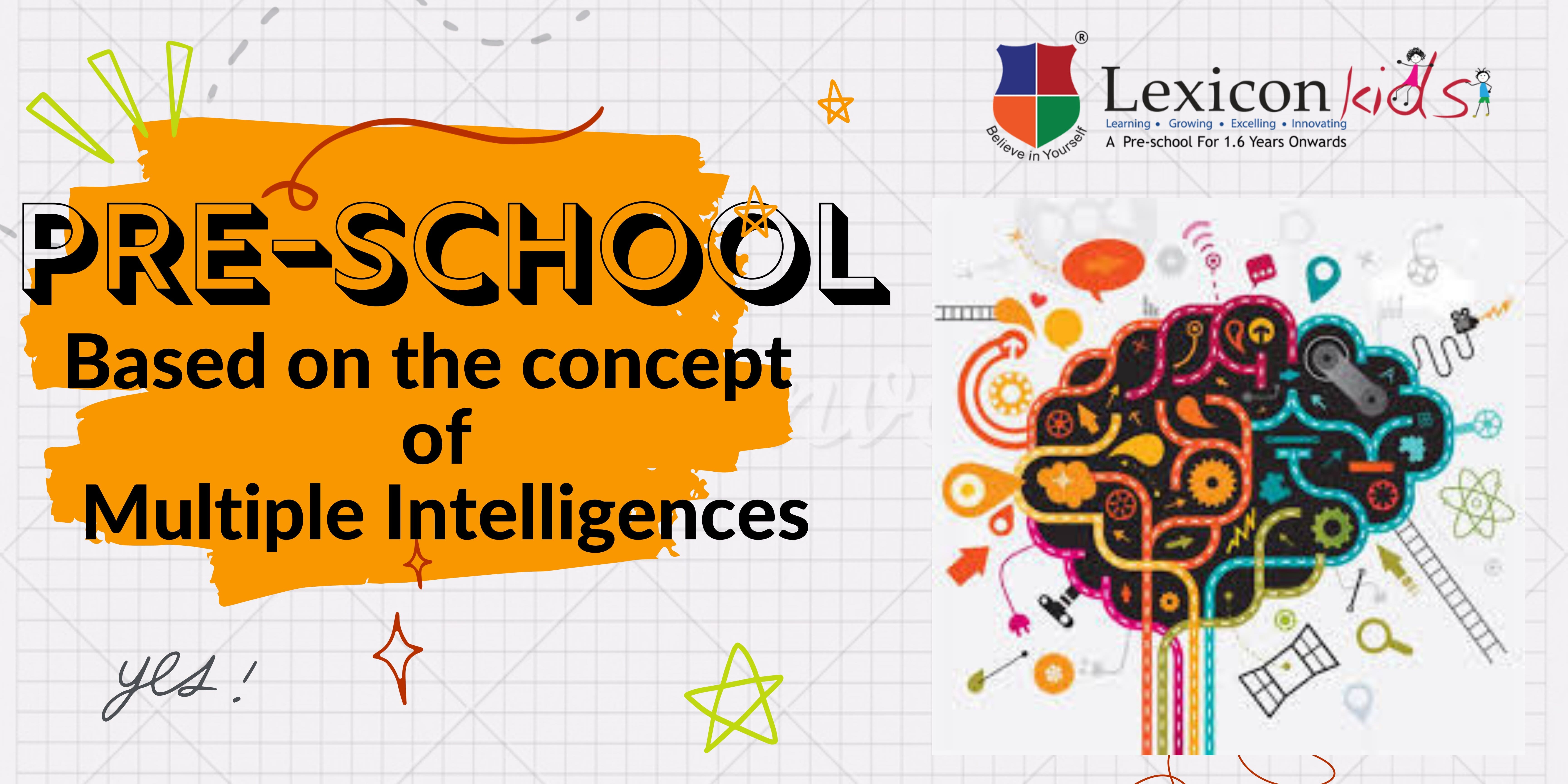Preschool Based on the concept of Multiple Intelligences
In 1983, Howard Gardner, a developmental psychologist, John H., and Elisabeth A. Hobbs Professor of Cognition and Education at the Harvard Graduate School of Education, negated the idea that people are born with a single intelligence. According to Gardner's theory of multiple intelligences (MIs), there are eight different human intelligences.
Gardner also stated that people possess different types of intelligences as a result of biological and environmental factors. For example, one child may be musically inclined and have stronger musical intelligence. Another child may have a logical bent of mind and have mathematical intelligence, while another may have interpersonal intelligence.
What Are the Multiple Intelligences (MI) ?Gardner defines the eight types of MI as follows: Each one of us has them, but it differs from person to person the dominance of one or more intelligences or the combinations of them.
- Linguistic Intelligence: People with strong Linguistic Intelligence may have an affinity towards words, sound, and rhythm. They may be more inclined towards reading, writing, or public speaking than others.
- Mathematical/Logical Intelligence People with a logical bent of mind, greater understanding of numbers, patterns, or symbols. They are blessed with problem-solving skills and have strong computing skills.
- Bodily/Kinesthetic Intelligence: People with dormant kinesthetic skills use gross motor skills or fine motor skills to express themselves, learn, or solve problems. Use agility coordination using the body as a whole or parts of the body.
- Musical Intelligence: People with this Intelligence have a better understanding of rhythm, musical nodes, and pitch. They love to express themselves through singing, creating music piece or playing musical instruments.
- Spatial Intelligence: Creating, imagining something in a larger space, for example, architect or pilot. Artist or photographer with a strong understanding of art and pictures.
- Intrapersonal Intelligence: People who have awareness about their feelings, thoughts, and anxieties. They know how to control their impulses and behavior and are good at making plans and taking decisions
- Interpersonal Intelligence: People with a better understanding of others and their emotions. They make great leaders are and are good at people management skills and getting work done. This intelligence is also known as social intelligence.
- Naturalist: Better understanding of nature, plants, animals, and the environment. People with stronger naturalistic skills use the element of the natural world to create products and solve problems.
At Lexicon Kids, we follow the Multiple Intelligence approach. We have an age-appropriate, well-crafted curriculum with MI as a backbone, catering to all 8 aspects of Multiple Intelligences. We strongly believe there is more to a preschool than just numeracy and literacy. A child's potential should develop in all the eight areas listed in the Multiple Intelligence approach. A child needs to be body smart, people smart, self-smart, nature smart, music smart, picture smart, apart from word smart and number smart.
Our teachers thus are able to understand children's different ways of learning. Each child is unique. One may prefer verbal explanation, another may prefer hands-on learning, while some may follow pictures or diagrams.
Hence Multiple Intelligence helps us to cater to each and every individual student's individual educational needs, thus making everyday learning more accurate and fun.







